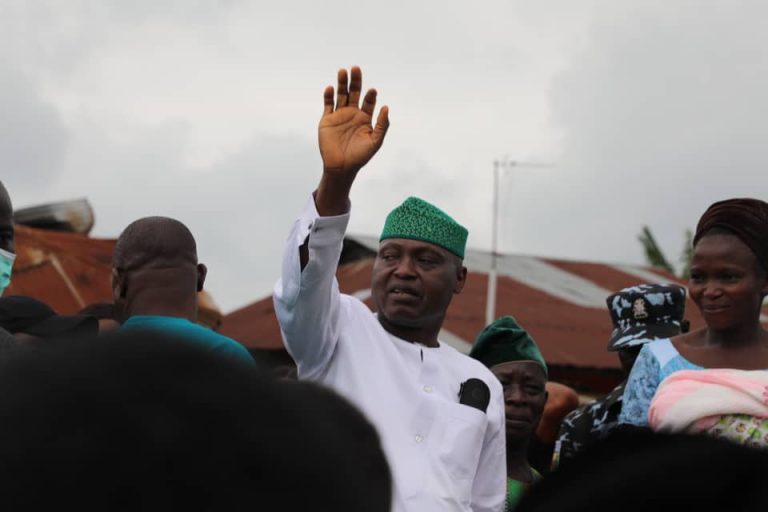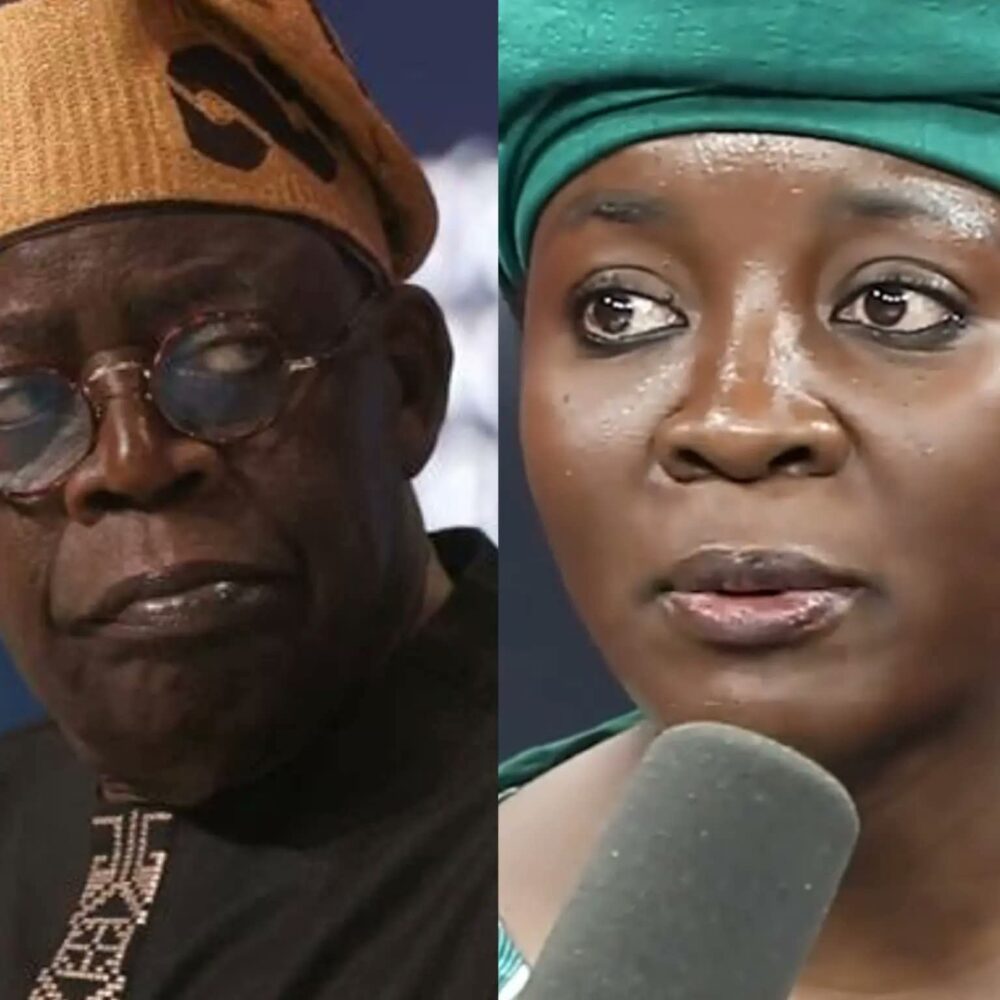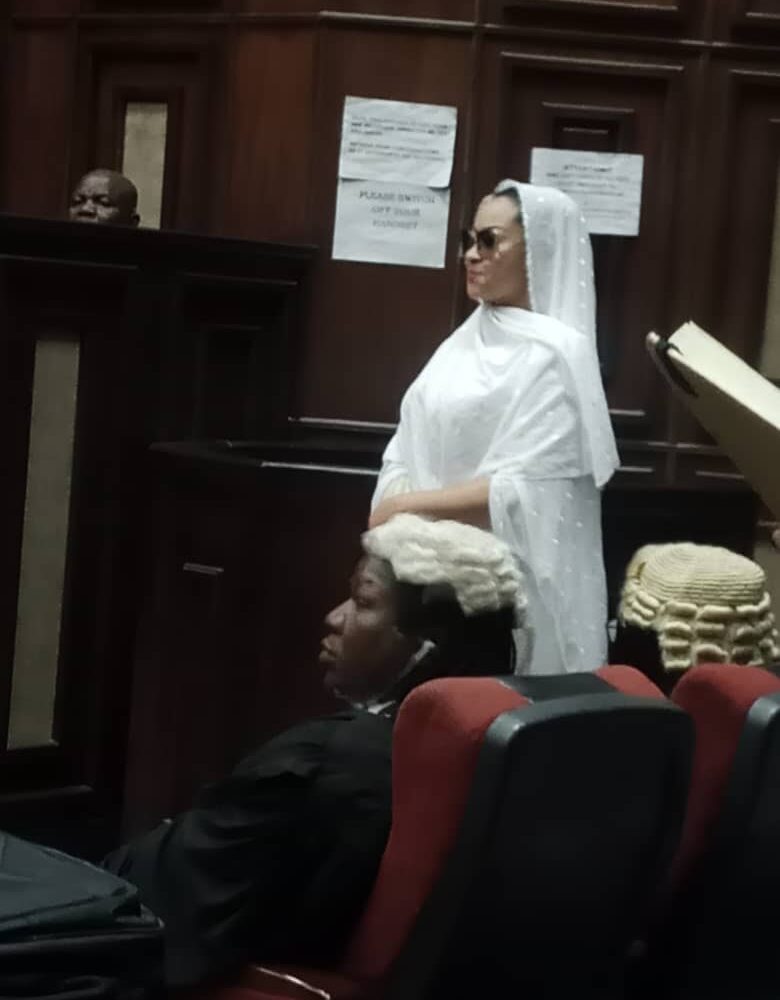The conferment of a national honour of Member of the Order of the Federal Republic (MFR), on Imam Abdullahi Abubakar, is not just deserved, it is the finest statement President Buhari has made on religious freedom in our polity. The act also repudiates, even if momentarily, the dictum that a prophet has no honour in his homeland.
I am not particularly concerned about some of the issues that attended the ceremony itself. For instance, the exhibition of disrespect, incivility, and a display of counterculture by a very few of the recipients; or whether some of the recipients are even deserving – indeed, some may not be deserving, and the fact that they scaled through the screening process has caused some citizens to express concerns.
I know it is not a piece of cake to reduce over 5,000 applications to 450. I commend His Highness, the Emir of Lafia, Sidi Bage, Muhammad I, (Justice Sidi Bage, JSC, as he then was), who headed the National Awards Committee. He must have done his best to ensure justice. He has dispensed justice in the past. He, it was, whom as a High Court Judge in Abuja in 1992, gave the first judgement in a case involving me and my comrades and our school (Niyi Ibietan & 44 Ors Vs University of Abuja and 2 Ors), invalidating our expulsion and directing the University authorities to reinstate us. By so doing, he made a judicial validation of the Constitutional right to associationism.
My interest, as I had hinted, is the honour done to Imam Abubakar. Though it is coming late, it is better late than never, because of its implication, not just for religious freedom but for social cohesion in Nigeria. It saddens me that we are just giving a befitting recognition for a heroic act, a feat for which the United States Government already awarded Imam Abubakar, the International Religious Freedom Award (IRFA) on July 18, 2019. It is a paradox that it took three years after foreign recognition for the cleric to get a befitting national honour in his own country. A specially convened national merit award session for Abubakar’s sake in the same year he performed that feat at a risk to his life would not amount to a big offering from a society where religious extremism has sadly become a menacing fault line.
Imam Abubakar, the leading cleric of Akwatti Mosque in Nghar, a community in Barkin Ladi Local Government Area of Plateau State, opened the Mosque he leads and his house as refuge to 262 Christians fleeing Islamist gunmen who invaded the village and had already killed 84 people but seeking more bloodletting. It was reported that the gunmen got to Abubakar’s abode and ordered him to release those in his house and the Mosque for immolation, but he refused and asked to be killed in their stead when the gunmen resisted all entreaties. His action saved all those who ran to him, others were not as lucky.
Abubakar gave pragmatic fillip to the underlying principles of the Consequential Ethical Theory as much as he did to Ethical Kantianism. In order words, he proved that the value of an action, whether ultimately good or bad, is to be measured by the result (Consequentialism). Equally, the cleric proved that “an action is morally acceptable if the principle behind it is the duty to the moral law…, that the actor must set before itself not only a principle but also an end”. Finally, Abubakar gave empirical expression to that which seems an abstraction, that is, the social actor’s obligation to be a stickler to ‘categorical imperative’ (an unconditional moral responsibility) largely independent of external influence but essentially driven by the inherent rationality.
Imam Abubakar, a Hausa, alongside his assistant, Umar Abdullahi, a Fulani, had reached a categorical level of acceptance and tolerance. To him, a Christian is inseparable from the collective humanity. The community of humans, as far Abubakar is concerned, is incomplete if stripped of its sectarian diversity. He already saw in his neighbours the inherent beauty of God and committed himself to the ideals of inviolability of life, demonstrating that under no circumstance will life be taking unjustifiably under his watch, and God be with him, he saved lives on June 23, 2018, in what had become Nigeria’s signpost, a painful trending orgy of faith-based pogroms that rocked the Plateau, other parts of the country and seized Nigeria by the jugular. The carnages made many citizens to question our humanity, and the fabric of our social cohesion was weakened. We are yet to recover.
Just last week, the country was greeted to a scary report of the 2022 Social Cohesion Survey, facilitated by the African Polling Institute (API). It was damning. Nigeria’s social cohesion index was 39.6 percent, a 4.6 percent decline from the 2021 findings, and certainly farther from the global threshold of 50 percent. Religious difference was identified as one of the major sources of conflicts, and as Imam had demonstrated, religious leaders were rated far above the government as a central social agency that gave the people succour to cope with conflicts and their fallouts. We are so polarised, the report asserted, and of the three identified causes of polarisation, religion constituted 57 percent.
In a panel discussion which engaged Prof. Kingsley Moghalu’s keynote paper, as a member of the panel, I gave example of how some of the people I had worked with in the past demonstrated commitment to building social cohesion. I mentioned Frank Nweke Jr, whom I served as Special Media Advisor seventeen years ago. Nweke had five aides but only one is Igbo, Nweke’s ethnic nationality. I also mentioned Tony Ojobo, former Director of Public Affairs at NCC, who ensured that representations from the Department he oversaw, was always representative of Nigeria’s diversity.
At the forum on October 6, 2022, I bemoaned elitist manipulations and mismanagement of our diversity and condemned situations where elected and appointed public officials appointed aides that are only of their ethnic nationality, region and faith. I recommended condemnation of such practices, and equally submitted that we should incentivise acts of social cohesiveness as demonstrated by citizens in whatever capacity.
This is the context in which the honour bestowed on Imam Abubakar makes great, indelible meaning on me and I believe to all rational patriots too. It explains my continued love for those who consistently and sincerely show concrete, unequivocal commitment to oneness, tolerance, trust, fairness, worth and love for one another, what Manuel Castells called the ‘other’ humanity, in the second volume of his magnum opus trilogy, THE POWER OF IDENTITY. Nigerians need to accept, tolerate, and give due as well as fair recognition to each other, and particularly the ‘other’, for therein lies the promise of greatness in diversity.





